Jude Knight's Blog, page 92
October 5, 2018
The railway revolution

I’m continuing with a travel theme, and taking a look at my favourite mode of transport: trains. Those of us who are old enough to remember life before the internet have some idea what railways meant to how human beings live on the planet.
As they spread across one country after another in the nineteenth century, they opened unprecedented opportunities for trade, allowed investors to make huge fortunes, and gave ordinary people access to places, goods and services that had previously been exclusively for locals or the wealthy.
They also destroyed industries and the communities built around those industries.
Travelling at speed
Before trains, the fastest form of travel was a galloping horse. Set up a succession of horses spaced about ten miles apart, and you could get a message from London to Edinburgh in, perhaps, 48 hours (depending on road conditions). Travelers without such a facility would take four to eight days. In Victorian times, a train would take 16 hours to do the same journey.
Moving in bulk
Before trains, you could move goods in bulk (by barge or ship), or you could move them at speed (relatively speaking), but not both. Same with people. An army on the march could cover 30 to 50 miles a day, or boat down a river at whatever speed the current traveled. Trains reached 60 miles an hour by 1840, carrying people and goods at speeds never before possible.
Unintended consequences
Trains made the suburbs possible. They put a day trip to the seaside within the reach of ordinary city dwellers. They allowed factories to shift their goods across nations and across borders. They also furthered the depopulation of the countryside, replaced local goods — especially foods — with products brought from far away, and changed social habits, employment, and culture.
Massive engineering projects opened up inaccessible places to travelers and settlers, often at the expense of local communities.
Trains upped the head count in a disaster. An accident to a horse might take a single rider. One to a coach might result in several deaths. When a train hit another in a tunnel in 1861, 23 people died and 176 were injured.
In both positive ways and negative, trains changed the world.








October 3, 2018
Arrivals on WIP Wednesday
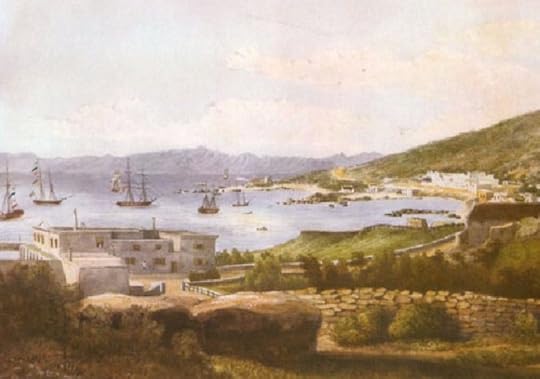
This week, I’ve picked arrivals for my theme. Your choice. An arrival at a ball or dinner. The end of a long journey. Any kind of arrival, and from anyone’s point of view. Mine is Mia, the captain’s wife from Unkept Promises, meeting her husband again after seven years, when she comes to South Africa to look after his dying mistress. Ever since her own arrival, Mia has been expecting Jules back from his patrol in the seas off southern Africa.
Dear Heavens. The man was gorgeous. In the seven years since Mia had last seen him, she had managed to convince herself her memories had played her false. She had been alone and frightened, trapped by smugglers and locked up in a cave. And then a golden god had wriggled through from the cell next door. He had kept her company in the darkness, comforted her when her father died, fought the smugglers to win her safety, and then married her to save her reputation and give her a home.
Of course she adored him. She very likely would have developed a major crush even if she’d met him socially — she had been fourteen, had grown up largely isolated by her father’s social position as a poverty-stricken scholar of good family. It was no surprise she fancied herself in love with the first young man she had ever properly talked to.
Handsome is as handsome does, she warned herself as she made her way down to the kitchen. But even in a taking about something, as he clearly was, he was unbelievably handsome. Mia thought she was immune to handsome men. Her brothers-in-law were all good-looking, and Mia had been propositioned at one time or another by most of London’s rakes, who clearly believed that a wife who hadn’t seen her husband in seven years must be in need of their attentions. None of them made her breath catch, her heart beat faster, and her insides melt.
Jules did, destroying all her preconceptions. Mia had assumed that, in the renegotiation of their marriage, she and Jules would be equally dispassionate. So much for that. Even grumpy; even with most of his attention on another woman, even with all that she’d heard about him to his discredit, she wanted him.
In the kitchen another handsome man, this one only twelve, took pride of place in Cook’s own seat, being waited on by his two adoring sisters. Marshanda was shuttling between the table and the chair, refilling the plate from which Adiratna was feeding her brother, who was sampling scones topped with different flavours of jam with the judicious air of a connossieur.
Marshanda saw her first. “Ibu Mia,” she announced, then ducked her head. She was not fond of being noticed, whereas her little sister wanted to be the star of every occasion.
Adiratna patted her brother on the cheek as a means to get his attention. “Ibu Mia is Mami’s sister, and our elder mother, Mami says.”
Perdana narrowed the beautiful eyes all three children had inherited from their mother, examining Mia thoughtfully. Then he lifted Adiranta from his knee and stood to bow. “You are the Captain’s wife,” he announced. “Has the Captain arrived, Ibu Mia?”
Mia nodded. “He is with your mother, children,” she told them. “Give him a few minutes, my dears, and I am sure he will be down to find you.”
Adiratna was already on her way to the door, but she stopped obediently when Mia said her name. She turned and stamped her foot. “But I want my Papa now,” she whined. “He has been gone for ever so long. I want to show him the doll that you brought me from London, Ibu Mia.”
“And so you shall, darling,” Mia reassured her. “But we cannot properly greet Papa without just a little noise, can we? And noise makes Mami so tired.”
“Yes, Ada,” Marshanda said, her bossy streak overcoming her reticence. “You know you will squeal when Papa gives us presents. You always do.”
Adarinta’s eyes widened and sparkled. “Presents!” In moments, she was back across the room, tugging on Perdana’s hand. “What has Papa brought me, Dan. You know, I know you do.”
“Lumps of coal, like the Black Peter we saw on St Nicolas Day,” Perdana answered, promptly, “And a switch to beat you with, for you have undoubtedly been a great trouble for Mami and Ibu Mia.”








September 30, 2018
Tea with Caibre MacFearran, a cowboy in a kilt

Today, the Duchess of Haverford is having tea with Caibre MacFearann: Hero of A Wish for All Seasons (and by the way he’s a cowboy in a kilt). A Wish for All Seasons is a historical romance novella by Rue Allyn. Eleanor has consented to interview Mr. MacFearann for readers of historical romance everywhere.
 I am glad you could join me, Mr. MacFearann! Please tell us about the story your author wrote. Ms. Allyn’s wee story is titled A Wish for All Seasons. I believe you ladies would call the story a historical romance. While adult ladies are Ms. Allyn’s intended audience, any young person, age 13 or above could read the tale without risk of traumatizing their young minds. While I find such doings a tad embarassin’, I know Ms. Allyn would want us to share a thing she calls a blurb with your readers. So here ’tis: The last thing Caibre MacFearann wants is to return to Scotland let alone be forced to stay there. But the chance to rekindle the lost love of his youth is too tempting to resist. However, Aisla MacKai refuses to listen until her clan’s fate and a royal decree force Aisla to give him a chance.
I am glad you could join me, Mr. MacFearann! Please tell us about the story your author wrote. Ms. Allyn’s wee story is titled A Wish for All Seasons. I believe you ladies would call the story a historical romance. While adult ladies are Ms. Allyn’s intended audience, any young person, age 13 or above could read the tale without risk of traumatizing their young minds. While I find such doings a tad embarassin’, I know Ms. Allyn would want us to share a thing she calls a blurb with your readers. So here ’tis: The last thing Caibre MacFearann wants is to return to Scotland let alone be forced to stay there. But the chance to rekindle the lost love of his youth is too tempting to resist. However, Aisla MacKai refuses to listen until her clan’s fate and a royal decree force Aisla to give him a chance.
Please tell us about yourself. I am a mon of twenty-eight years. I was born at Castle MacFearann on the northeast coast of Scotland. I’m a ranch owner in Wyoming territory. While I live in and love Wyoming, I’ll fore’re be a Scotsman true.
Will you tell our readers what you look like? I’m a fair height and lean. I’d guess I weigh about 13 stone. My hair is reddish brown, and I have blue eyes. My face is square. Some say I’ve a determined chin, others have accused me of being made o’ rock. That picture Ms. Allyn provides is somewhat misleading. It was painted when I was a young mon before I left Scotland. It doesna show anything of what’s happened to me since I left. I dinna wear a kilt verra often now days.
Who is the significant other in your life? Significant other? ’Tis a bit of an odd term that, but I’m supposin’ you mean Aisla MacKai, the only woman I’ve ever loved.
How do you dress? I wear practical clothes for work and weather—trousers, shirt, chaps, boots, shearling jacket and a Stetson hat. I clean up fairly well. I only wear my tartan and kilt in Scotland and for special occasions.
If we could only hear your voice (but not see you) what characteristic would identify you? Steady.
What is your viewpoint on wealth? Wealth is nae to be sneered at. It is convenient to have. The lack of wealth forced me to leave Scotland and the woman I love. I was too puir a mon to support Aisla when I left. I thought never to return, but fate has seen differently, and I now have the means to keep my love in comfort.
What kinds of things do you always carry (in pockets or purse)? Oiled paper, flint and steel for starting a fire. Kindling is nae always easy to find.
What is your family like? I have one older brother, Eric. He’s laird of clan MacFearann now that our father has been laid to rest. We’re verra close and determined to return honor to the name MacFearann.
How do others perceive you based upon looks, and is this assumption accurate? A great many men think of me as a nancy boy when the first meet me. It’s because I bathe and wear clean clothes every chance I get. Those men discover quickly they are mistaken.
Do you care about what others assume about you? Only two people’s opinion of me matter. My brother Eric’s and my darling Aisla’s. The rest of the world can go hang.
Can you keep a secret? Why or why not? O’ course I can keep a secret. ’Tis only honorable, and I’d nae do anything lacking in honor.
What secrets do you know about people around you that you do NOT share? Well now, if I told you, they’d nae be secrets would they?
What would help you face hardship and meet any challenge? The love of Aisla MacKai and the hope of winning her.
If you could make any one thing happen, what would it be? I’d make Aisla’s life easier. She’s had a rough time of it w’ her brother being declared dead and all. The queen has even threatened to take the MacKai barony back if Aisla doesna marry in six months.
What would you like to tell your writer? I’d tell Ms. Allyn that she should give A Wish for All Seasons more words. Aisla’s story and Mmine is too important to squeeze into a short novella.
What would you like people who hear your story to know? That happiness will come your way, no matter your difficulties., just Follow Your Star Home.
Is there anything else you’d like us to know? Absolutely. On November 4th of this year, the Bluestocking Belles will hold a party in honor of the release of their boxset, Follow Your Star Home. Everyone is invited. Here is the location where you can RSVP and get more information. I will attend as escort for both Ms. Allyn and my beloved Aisla. The party will include all the Belles, many guest authors, games and prizes. Attendees are encouraged to come attired in the dress of their favorite time period, since the stories in Follow Your Star Home span more than 1,000 years of history. I hope to see all of you there.

Where to buy Follow Your Star Home the boxset containing A Wish for All Seasons.
The book is available on pre-order until it is released November 4, 2018.
Amazon: https://www.amazon.com/Belles-Christm...
Smashwords: https://www.smashwords.com/books/view...
Kobo: https://www.kobo.com/nz/en/ebook/bell...
About Ms. Allyn
 Rue Allyn is the award-winning author of heart melting historical and contemporary romances. A USN veteran with a Ph.D. in medieval literature, Rue has retired south of the US border where she enjoys sunny days and heated inspiration. She continues to enjoy professional relationships in the Romance Writers of America, The Maumee Valley Romance Authors Inc. and the (in)famous Bluestocking Belles. She can be reached at any of the following locations.
Rue Allyn is the award-winning author of heart melting historical and contemporary romances. A USN veteran with a Ph.D. in medieval literature, Rue has retired south of the US border where she enjoys sunny days and heated inspiration. She continues to enjoy professional relationships in the Romance Writers of America, The Maumee Valley Romance Authors Inc. and the (in)famous Bluestocking Belles. She can be reached at any of the following locations.
Website: https://RueAllyn.com
Facebook: https://www.facebook.com/RueAllynAuthor/
Twitter: https://twitter.com/RueAllyn
Newsletter: https://www.rueallyn.com/squeeze-page/
Pinterest: https://www.pinterest.com/RueAllyn/
*This interview format adapted with permission from that used on Romance Lives Forever ADD LINK








September 28, 2018
Why Georgian England partied at the full moon
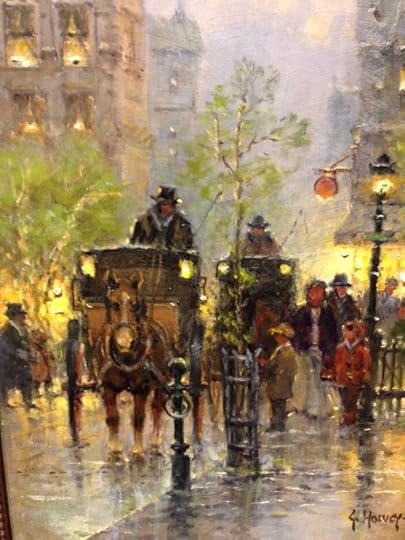
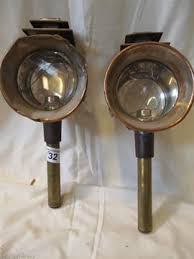 I’ve been studying sunrise and sunset, moon rise and moon set, and moon phases charts for December 1814 and January and February 1815. My characters in my latest work in progress live in a quiet corner of the country within an hour’s carriage ride of Bath, and want to attend the assemblies there. Dreadful roads and poor lighting are an accident waiting to happen, which the Georgians knew even better than we do, living in a world where street lighting hadn’t spread beyond the wealthier parts of the bigger towns.
I’ve been studying sunrise and sunset, moon rise and moon set, and moon phases charts for December 1814 and January and February 1815. My characters in my latest work in progress live in a quiet corner of the country within an hour’s carriage ride of Bath, and want to attend the assemblies there. Dreadful roads and poor lighting are an accident waiting to happen, which the Georgians knew even better than we do, living in a world where street lighting hadn’t spread beyond the wealthier parts of the bigger towns.
If you lived in a large country house and wanted to hold a party, you’d probably arrange it for a time when the moon would give your local guests sufficient light to see their way, perhaps with a bit of assistance from a pair of carriage lamps (fueled by oil). According to some research done by the US army, your driver would be able to pick out sufficient detail for safe driving at a distance of 400 metres on a cloudless night under a full moon that is high enough in the sky to light the road you’re using. This could drop as low as 20 metres at the quarter moon, making for a very slow trip.
In town, those out for the evening would send footmen or hired link boys to go ahead of the carriage with links (bundles of rush dipped in pitch and set alight to make a torch) or oil lamps. I guess close neighbours might have done that in the country, too. But not my characters — they have too far to go, so are stuck with partying only on a fine and moonlit night.








September 26, 2018
The real world on WIP Wednesday

Our stories happen in a context, whenever and wherever they are set. And we build our context from our real life experiences. This week, I’m looking for extracts that contain the facts we use as settings for our tales. Please pop them into the comments and let us all enjoy them.
I write historicals, so I do a lot of research, around 10% of which makes its way onto the page. The following excerpt is from Paradise Regained, which is now on preorder in the Belle’s holiday box set, for release on 4 November. My story is set in the mountains north of Iran, in an entirely fictional hidden kingdom, at a time of great turmoil when one Iranian dynasty was giving way to another in bloody confusion. (No, I didn’t swear.) My fictional Mahzad’s grandfather is a relative of the historical old dynasty and has stolen the seal of a fictional saint, but such relics were and are treasured in real life.
Quickly, Mahzad and Gurban told him all that happened, breaking off frequently as yet another group of people came running to check that the arrivals were, indeed, their people and their kagan.
“So,” James said, once he had the gist of it, “the Khan has a secret, which he will tell only to me. Very well. Let us give him the opportunity.”
They did not have to look for the man. As they entered the palace, Garshasp Khan was waiting, wearing a huge smile.
“My son Jakob, you are come home. Welcome. Welcome. Peace be upon you.”
Mahzad crushed her irritation at her father’s arrogance, acting as if this were his own house and not hers and James’s. James took the greeting with equanimity, returning the formal greeting. “Peace be upon you, Excellency. We are blessed that you have chosen to grace our house.”
“You will say so.” Garshasp chortled. “You will say so indeed. I have brought you a treasure, Jakob.”
James said nothing more but led the way into a chamber off the main hall, turning everyone away except Mahzad, Gurban, and Garshasp.
James wasted no time, cutting straight to the point with Western directness. “I took from you a treasure, excellency, and for her sake you are always welcome here, but you have also brought trouble to my gates. I am told you have promised me an explanation.”
“And you shall have it. I took it from its hiding place the moment I knew you were here. Look, my son. Look.”
Mahzad leant forward to see the small gold item her father pulled from his robes. James plucked it from Garshasp’s palm and held it up so that she and Gurban could see.
“A seal stamp?” Gurban asked.
“The inscription reads ‘Abu Rahman ul Hafi,” Mahzad said. She turned to look at her father aghast.
“Abu Rahman ul Hafi?” James closed his fingers over the seal, hiding it from view. “The saint whose shrine is in Asadiyeh?” He whistled low and long. “No wonder the Qajar are at my gates.”
Garshasp smiled broadly. “A treasure, as I told you, and one you can use to buy the safety of my daughter and my grandsons.”
Mahzad rounded on the old fool. “We were safe until you brought them on us.”
The old man looked down his long nose at her. “Think you the Qajar would leave any of my blood alive? No. The purge is underway even as we speak. And you, you ungrateful woman, are the last of my children. Your sons are the only hope of my line.”
She would have retorted, but James cut through with quiet authority. “You will address Mahzad with respect, excellency. She is no longer merely your daughter. She is the katan of this valley, a position her merits won for her. Beyond that, she is, as you have pointed out, my wife and the mother of my sons and daughters.”
“Daughters!” Garshasp growled. “Wait till your own are grown and then talk to me of daughters. Hah! I have given you the seal, Jakob. Use it as you will, and the rest of the goods I brought with me are for you and your sons, though half the value was in the slaves, which this wife of yours declared free. You will excuse me. This old man needs to rest.” He turned and strode out, though his steps faltered as he passed through the doorway.








September 24, 2018
Tea with Cecily

Cecily was older. Of course she was. More than fifteen years had passed since the season they shared; the season that ended with Eleanor’s broken heart and Cecily’s marriage. She and her husband Alec had taken a long wedding trip, to see the Orient, they said. And then… nothing. Until she appeared again in England, just a few weeks ago.
 Through the ritual of greeting, of inviting her guest to be seated, of preparing a cup of tea for each of them, Eleanor kept shooting glances, comparing the composed and still lovely woman before her with the gangling clumsy teen Eleanor had taken under her wing at first meeting. She glowed with happiness, but the lines barely visible on her brow and around her eyes spoke of suffering and pain. What had happened in all those years away?
Through the ritual of greeting, of inviting her guest to be seated, of preparing a cup of tea for each of them, Eleanor kept shooting glances, comparing the composed and still lovely woman before her with the gangling clumsy teen Eleanor had taken under her wing at first meeting. She glowed with happiness, but the lines barely visible on her brow and around her eyes spoke of suffering and pain. What had happened in all those years away?
They spoke of nothings: the weather, the fashions, who was and who wasn’t in Town, until all of the maids had left the room and they were alone. Then they both spoke at once.
“Did you wish to hear of…?” Cecily began.
“Lady Sutton and Lady Grace Winderfield tell me…” said Eleanor, stopping herself and waving her hand for Cecily to carry on.
Cecily nodded, as if Eleanor had confirmed what Cecily had been about to ask. “I met with Lord James Winderfield late last year. That is what you wished to know, is it not, Your Grace? Where I saw him, and how?”
“It is,” Eleanor agreed, grateful that decades of training and practice allowed her to keep her face and posture from reflecting her inner turmoil. “His sisters told me he was alive, but little more.” Married. To an Eastern princess. With children. Happy, or so Cecily had told them. It was silly to feel hurt. Did she expect him to wear the willow for her for a lifetime? She did for him, but look at the alternative! She had never been given the least incentive to fall in love with the tyrant she had been forced to marry. She was glad James was happy. Of course she was. Or would be, given time.
Cecily had kept on talking while she scolded herself, asking her something. Ah. Yes. Was she certain she wished to know the details?
“You loved him, once,” Cecily said, her voice kind.
She could answer that. “He was a dear friend, Mrs McInnes, and I have grieved him as dead these many years. I would dearly love to know how he survived, and how he now lives. And he has children, his sisters say. Many children. Please. Start at the beginning and tell me all about him.”

James Winderfield is hero of Paradise Regained, in which Cecily McInnes is the other woman. Paradise Regained can be found in Follow Your Star Home, the Bluestocking Belles’ 2019 holiday anthology, now on pre-release. See the link for more information and preorder links.
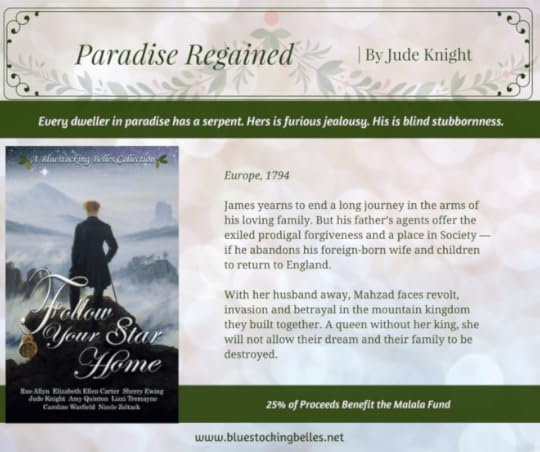








September 23, 2018
On the move
No time to sit still at the moment. We’re preparing the house for sale, and this weekend I stained more than 100 square meters of deck (over a thousand square feet for those of you who haven’t gone metric). One more weekend of hard push, and we’re ready to go.
In addition, I finished writing an application for the Katherine Mansfield Menton Fellowship, which provides a grant for New Zealand writers to live in Menton, France, for a few months, and work in a room in the villa where our famous writer Katherine Mansfield lived in 1920, Villa Isola Bella. Who knows how that will go? But gathering all the material together has been a useful exercise, and the letters of support I received from those I asked were very good for my ego.
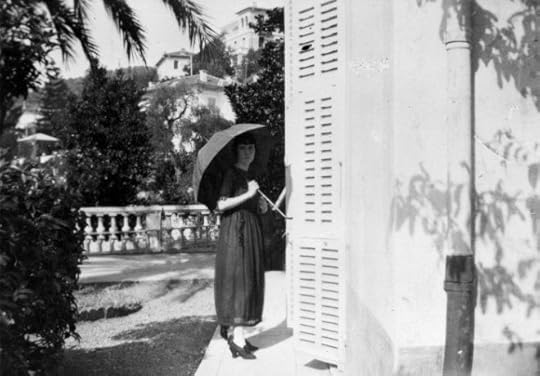








September 21, 2018
Carriages, horses, boats, and Shank’s pony

I’ve read a few novels recently where the protagonists make amazingly fast journeys, leaving London in the morning and arriving in York for afternoon tea, or zipping across the Mediterranean in what must be a jet powered sailing ship. It always throws me out of the story. So, in the interests of the pleasure I get from well-researched books, here’s my rule of thumb for early 19th century travel. Times give don’t allow for rest, changing horses, storms or other adverse conditions, or particularly fast journeys over a short distance.
Walking: ten miles in 3.5 hours
Carriage or horse: ten miles in 1 hour
Ship: four knots (four nautical miles in 1 hour)
Try these resources as a starting place for further research:
Sarah Waldock on speed of travel in Jane Austen’s England
Teach us history on Travelling in the early 19th century
Royal Museums Greenwich on sailing times in the 18th century
And posts of my own:
All at sea — travelling the Mediterranean








September 18, 2018
Building empathy on WIP Wednesday

You have a dilemma. Your fellow has some problems, or he’s not at all interesting (and the story is over a few paragraphs after it starts). But you want your audience to like him, or at least to feel empathy for him. He needs to do something selfless, or nice, or just plain sweet. Maybe he gives flowers to old ladies or dances with wallflowers or says nice things to our shy heroine or plays ball with children. How about using the comments to show me an excerpt of an empathy scene? Mine is from Abbie’s wish. Ethan remembers rescuing his cat.
Boss was up for a ride. Like all cats, she was territorial, sticking to the place she loved best. Unlike most, her territory comprised the Triumph and Ethan. Had ever since Ethan had rescued her and her brother, two scrawny kittens tossed into a deep drain and left to die. Ethan took them home inside his jacket and stayed up all night feeding them the goat’s milk preparation he’d found on the Internet. The brother didn’t make it. Boss got her name from the pre-emptory demands she was making when Ethan returned inside after removing the frail body of the dead kitten.
Boss thrived on frequent feeds, graduating from an eye dropper to a baby’s bottle and then to tinned kitten food and biscuits. She lived in Ethan’s pocket, or around Ethan’s shoulders, or in the pannier bags of the Triumph as Ethan moved from job to job, getting experience but never finding a place he wanted to settle. Two years on, Boss was a magnificent beast; at least, Ethan thought so. Tucked inside Ethan’s jacket as they cruised the highway out to Valentine Bay, she mostly slept, but poked her nose out from time to time, her eyes shut and her hair and whiskers streaming back in the wind.








September 16, 2018
Tea with Lord Overton

Today, a couple of excerpts from A Baron for Becky. The first is when the Duchess of Haverford arrives in response to Hugh’s letter, asking her son for help.
Aldridge must have been closer than Hugh expected. Three days after he sent his letters, a train of elegant sleighs coasted up the drive. Carriages, really, but with skids rather than wheels, each pulled by a pair of sturdy horses. The children, taking advantage of a break in the weather to play in the snow, stopped in their tracks and watched.
From the study window, Hugh could see three of the ornately carved and painted sleighs turn away towards the stable yard, and the remaining two continue to the front steps. He was not surprised all five sported the Haverford crest.
He excused himself to Becky, who didn’t look up from the fire she was examining so intently, and sent a maid to sit with her while he went down to greet his guest. He pasted on a smile. Hugh had sent for the arrogant, self-centred, wife-stealing son-of-a-bitch. And if Becky wanted to go with him, then that was the price Hugh would pay for Becky to be well again. Even if it meant losing Belle.
Smile. He needed to smile.
One carriage was disgorging an enormous number of retainers. How had they all fit? Sitting on one another’s knees? Aldridge stood at the door of the other, handing down a lady. Surely even Aldridge wouldn’t bring one of his paramours here!
Then the lady lifted her head. The face under the bonnet brought his smile out in truth.
He hurried down the steps to greet her. “Your Grace. I am so glad you have come.”
And in the second excerpt, she carts Hugh off to his study and proceeds to instruct him in how to bring his wife back to health.
He could be hopeful, but shouldn’t expect the current rally to last, the Duchess of Haverford instructed him. She had sent her son to play cards with her companion, and demanded that Hugh escort her into his study, where she asked him incisive questions about Becky’s illness and her treatment.
“The doctor said her humours were out of balance, and he bled her, but…”
“Stupid,” Her Grace said. “Very stupid. She had just had a baby and lost who knows how much blood, and the man bled her?”
“He bled her for the fever, too,” Hugh admitted. “But the second time, she was so weak. I was afraid she was dying. I wouldn’t let him do it again.”
“Good.” The duchess nodded. “You have some sense, then. I had my doubts. Very well, Overton. You shall place yourself in my hands, and I shall tell you what you must do.”
“I will not put her away,” Hugh said, firmly. “Even if her mind is weak…”
“Put her away? Why would you put her away? She will recover fully, and I will help. I have seen this before, Overton. Women, after giving birth to a child, often suffer a disorder of the humours. It passes. Your wife has had a worse time of it than many, perhaps because she also had childbed fever. I sometimes think that we gentry are more prone than cottagers, because others will do our tasks if we turn our faces to the wall.
“Several of my goddaughters have had this melancholy, and I, myself, after the birth of my dear Jonathan. Also, Overton, I think there has been some cause for estrangement between you. You will tell me whether I am right, for I do not suggest it to be a busybody, but because you need to mend it for your wife’s sake. A misunderstanding, of course, because she cannot bear to be parted from you. And you, it seems, love her dearly, about which I am delighted, since I hold myself in some sort responsible for the marriage.
“Whatever the cause, she has roused now, and we shall keep her with us, but be prepared to work hard and be patient.”
And so they began a strict regimen designed to build up Becky’s body. “Her mind will heal itself, Overton,” the duchess lectured, “but she needs good food, exercise, and sleep. And you must reassure her often. You will do that, will you not?”











